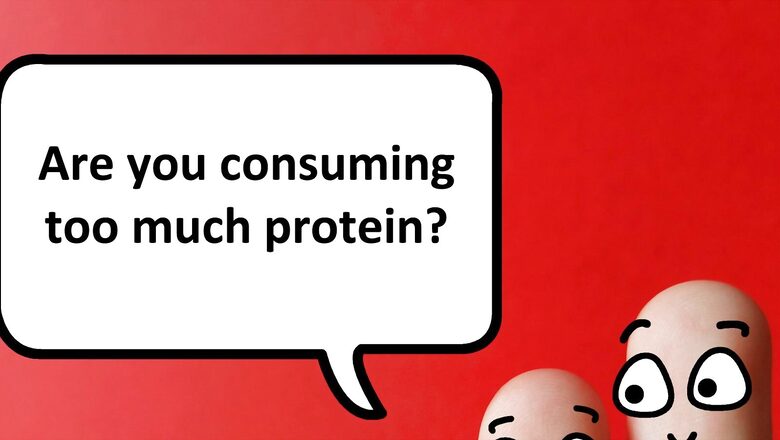
views
National Protein Day is observed on February 27 to raise awareness about this macronutrient and the consequences of its deficiency. Protein is an essential nutrient for the human body. The nutrient plays a crucial role in building and repairing tissues, producing enzymes and hormones, and supporting the immune system. According to the Indian Council for Medical Research (ICMR), the recommended daily intake of protein for adults is around 0.8 to 1 gm protein per kg body every day.
If you’re attempting to increase the protein intake in your diet, here are some everyday tips for healthy protein consumption:
- Incorporate plant-based protein sources into your dietPlant-based protein sources such as legumes, nuts, seeds, and whole grains are excellent sources of protein. These options are also typically lower in saturated fat compared to animal-based sources of protein. Consider incorporating lentils, chickpeas, quinoa, almonds, and chia seeds into your meals and snacks.
- Choose lean protein sourcesAnimal-based protein is the best source of protein when compared to other sources in terms of both costs and per-calorie basis. But if you do consume animal-based protein, choose lean sources such as chicken, turkey and fish. These options are lower in saturated fat and calories than fattier meats, which can contribute to heart disease and other health issues.
- Balance your protein intake throughout the dayEating protein with every meal can help you feel full and satisfied while also providing your body with the protein it needs. Aim for a balance of protein, carbohydrates, and healthy fats with each meal to promote optimal health and energy levels.
- Avoid processed meatsProcessed meats such as deli meats, bacon, and sausage are often high in saturated fat, sodium, and nitrates. All of these can increase the risk of heart disease and other health issues. Instead, choose fresh meats and prepare them yourself.
- Include protein in your snacksSnacks are an excellent opportunity to sneak in some extra protein throughout the day. Consider snacks such as Greek yoghurt, cheese, hard-boiled eggs, nut butter with apple slices, or hummus with carrot sticks to help keep your protein intake up and keep you satiated.
- Be mindful of portion sizesWhile protein is important for optimal health, it’s important to be mindful of portion sizes. Aim for a serving size of 80-120 gms of meat, fish, or poultry, or 1/2 cup of beans or tofu with each meal. The ICMR suggests that ¼ a plate at every meal should consist of protein sources.
- Stay hydratedWater consumption is crucial for overall health including protein absorption. Make sure to consume at least 8 or more glasses of water every day.
Incorporating healthy sources of protein into your diet can help support overall health and well-being. You can make sure that your body is getting the nutrients it needs to thrive by selecting a range of plant-based and lean animal-based protein sources. By balancing your protein intake throughout the day and paying attention to portion sizes, you can make sure that you are meeting your body’s protein requirements.
Read all the Latest Lifestyle News here













Comments
0 comment